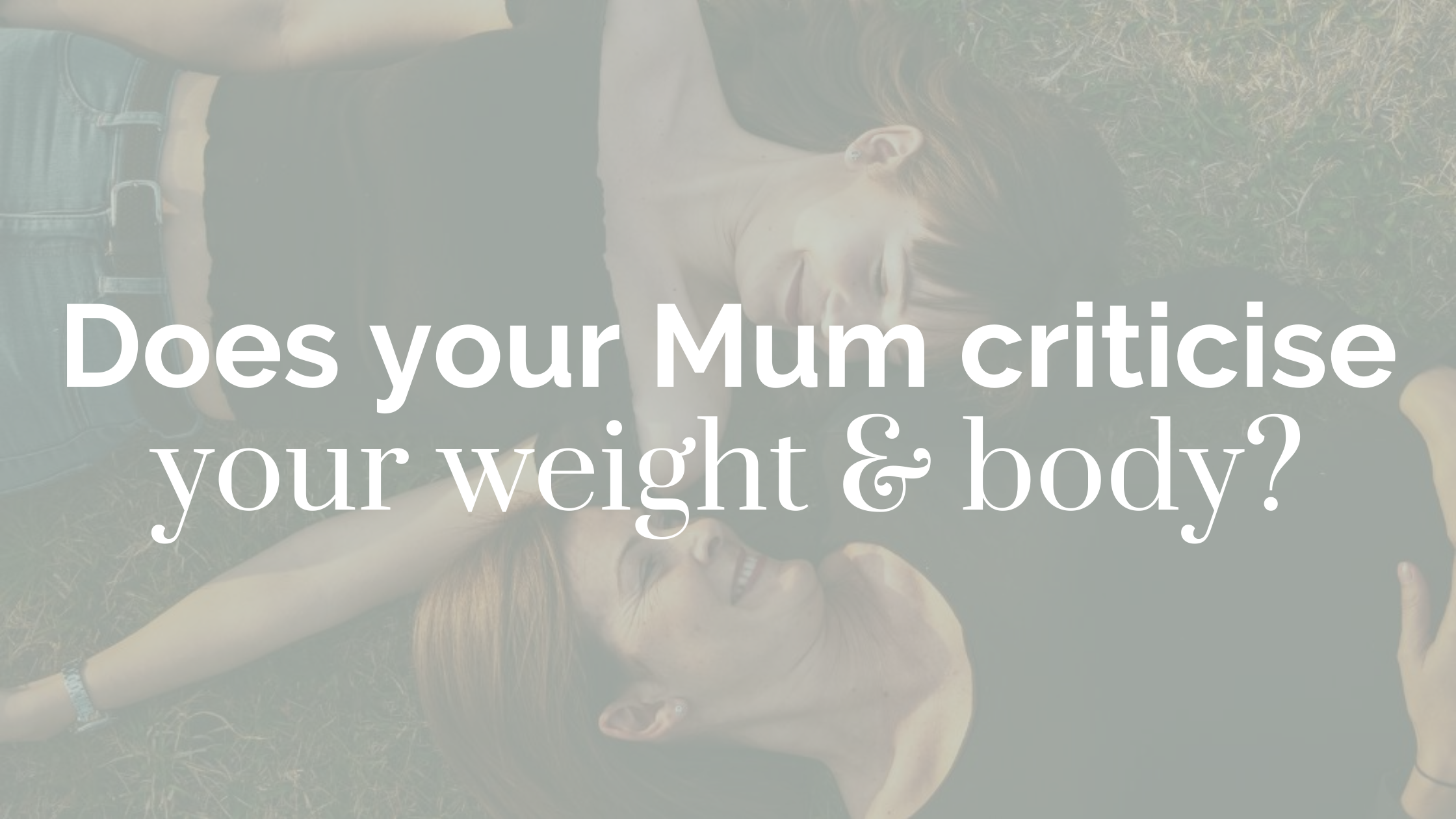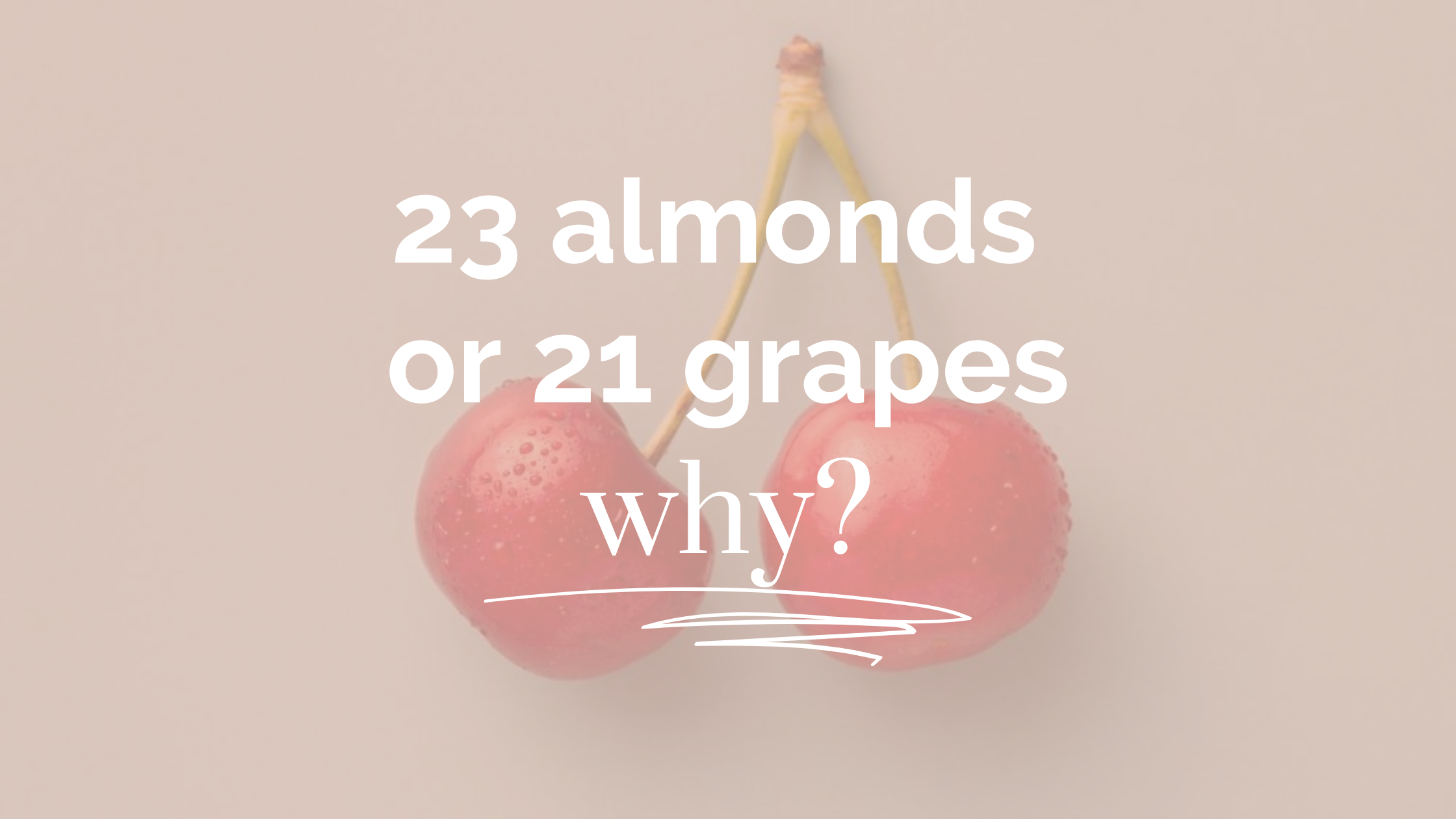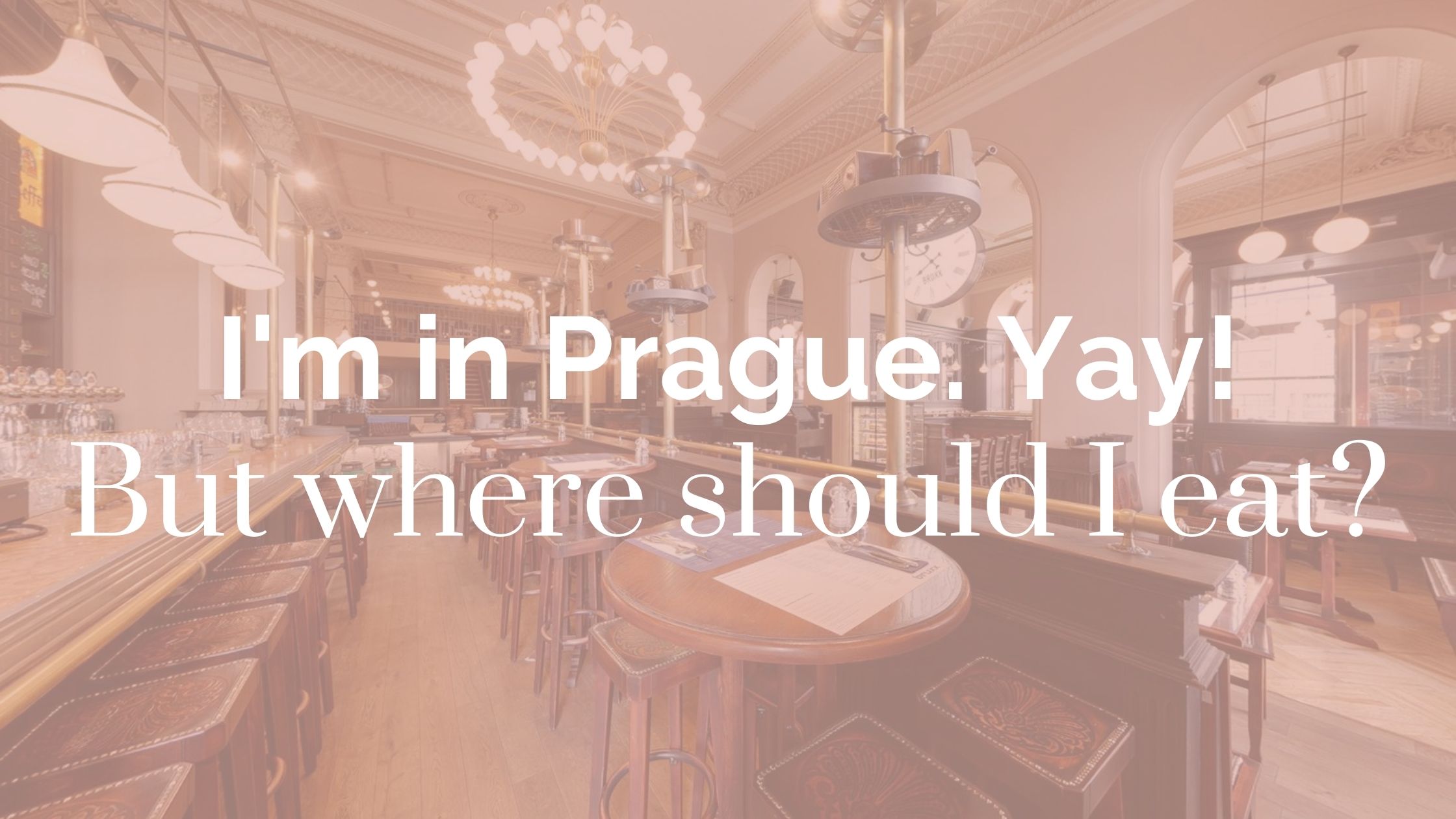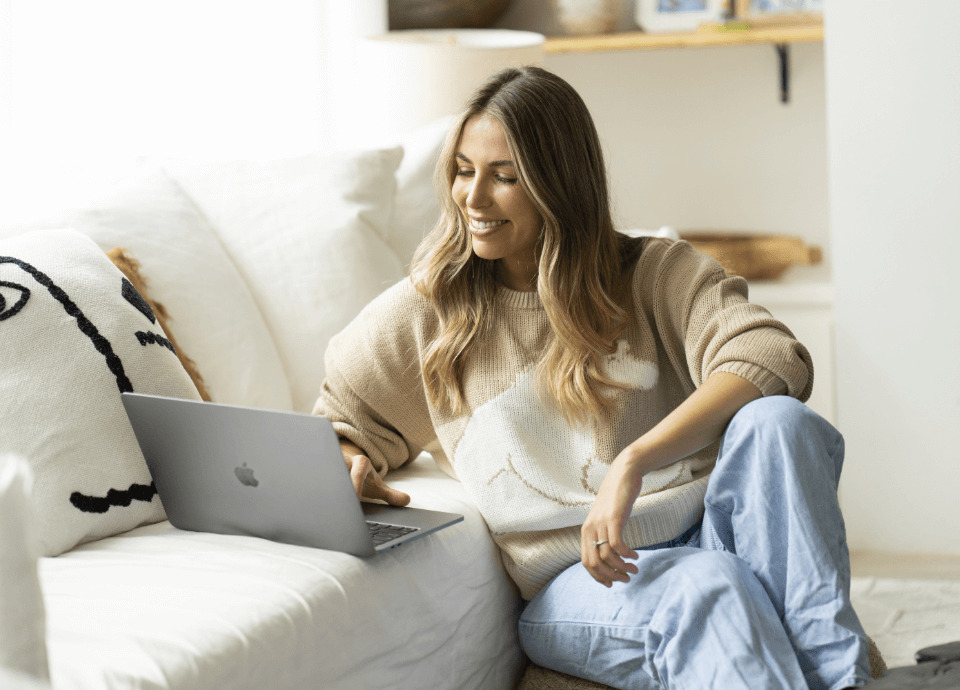How I Manage My Anxiety Naturally
Today is Monday. For some reason, on Monday’s my anxiety levels always tend to be higher.
Don’t get me wrong. I love my job and I consider myself a very lucky person.
But when Monday rolls around, an inevitable wave of anxiety often washes over me. But these days, the anxiety I experience mild. It’s manageable… But it wasn’t always that way.
Being diagnosed with clinical anxiety
I was told by my doctor that I had clinical anxiety back in 2010 and the diagnosis came as a complete shock. I cried. I howled. I was in distress. But now, I can see that the writing was on the wall.
For months, I had stopped wanting to socialise. When someone would text me asking to hang, I’d see it as a burden. Everything felt like a chore, even things I used to love doing. I didn’t want to do anything.
I wanted to crawl up in bed and never, ever come out. Everything felt pointless and I felt numb. Nothing in my life felt like it was going right. And it sucked. And I felt stuck. And so alone.

I had been feeling ‘out-of-sorts’ for several months but it took me a while to finally say to myself “I can’t go on like this”.
I was fed-up with feeling shitty and sad and angry. So in a desperate attempt to feel something again, I made an appointment with my doctor. And that was the start of it all.
 A rare picture of me in 2010. I deleted many of the pictures from then.
A rare picture of me in 2010. I deleted many of the pictures from then.
My anxiety treatment
I was initially put onto a high dose of anti-anxiety medication (I was on Zoloft – a serotonin re-uptake inhibitor).
I was uneasy about taking the medication but trusted my doctor, who gently explained I had a chemical imbalance of neurotransmitters (like serotonin) in my brain.
After noticing my apprehension about taking the medication, she reasoned “If you had asthma, you would take medication to ease the symptoms, right? This is not so different except this time your brain needs the extra support instead of your lungs”. That made sense to me.
I took the medication. And apart from some hectic symptoms whilst my body adjusted, the medication was key for me. It helped ‘take the edge off’. It was part of the solution – but not the full solution.

Another hard to find photo of me from 2010
The medication couldn’t treat the underlying issues that had caused the anxiety. The medication would simply remove the pressure, allowing me to action a treatment plan that involved tackling the core issues causing my anxiety.
And so, I began seeing a counsellor. Weekly. “It’s just a chat” someone once told me. “You’ve got nothing to lose”. And she was right. Although the ‘chats’ were challenging and tear-filled and exhausting – they were also game-changing. Life-changing.
During these sessions, I discovered that I had an eating disorder (Binge Eating Disorder, to be precise). And together with my counsellor, I discovered patterns in my thoughts that I could improve, change and adapt. I learned about ‘reframing’. About black-and-white thinking. I discovered I was too critical, judgemental and harsh on myself – like so many of us are.
I read books too – like “Change your thinking” by Dr Sarah Edelman. I discovered the Health At Every Size Movement. I read “If not Dieting, Then What?” By Dr Rick Kausman and “Health At Every Size” by Dr Linda Bacon. These books empowered me.
How I manage my anxiety today
These days, I’ve learned how to self-manage my anxiety, without medication*. It took me 4+ years of reliably taking medication (never skip a pill!), many hours on the couch with my counsellor/psychologist and lots of self-driven research to get to this point.
*Whilst I don’t take medication anymore (because that was possible for me) for some people, medication is and will always be necessary… and that’s totally cool.
I’ve now learned what it takes for me to manage my anxiety, naturally.
I’m not saying that these strategies will work for everyone but it is what works for me. I encourage you to explore yourself and find what works for you. You too can create your own list of practical steps that you can action when you’re feeling like ‘it’s all too hard’.
Also, please notice that I don’t consider myself free from anxiety. I don’t think that is the way it works. You see, like many people – I’m genetically predisposed to have anxiety and mental health struggles given my family history. My personality may also be part of the reason I have anxiety. And that’s cool.
Just like a physical issue like arthritis or IBD or psoriasis, I will manage my anxiety for the rest of my life. It will come in peaks and troughs, depending on my life’s stressors. But at least now – whenever I feel the wave of anxiety washing over me, I have my go-to list of strategies to help me manage my anxiety, naturally.
How I manage my anxiety naturally
1. Regular, enjoyable exercise
Growing up, I thought exercise was about burning calories and maintaining physical health. I thought that exercise was pointless if I wasn’t sweating or panting (or dry-retching)! But a very dear and wise friend shared with me that exercise was as much about maintaining mental health and it is about physical health. Instead of exercising to punish myself for eating (read more about my tortured relationship with food here), I began to exercise for my mind. When we exercise, we naturally release ‘happy neurotransmitters’ like serotonin into our brain. So exercise can be a powerful natural anti-depressant.
So I gave up the 5 am boot camps (which felt like punishment to me at the time) and the long, gruelling runs. No more boring reps at the gym. Instead, I began to exercise for enjoyment.
And for me – that meant yoga. Walking. Playing soccer and netball. Swimming. Latin dancing. And eventually triathlons and half-marathons (which felt fun!) These days, I make time to exercise because I know that even 20 mins a day, can change my entire outlook on the day.
I don’t always make it out to exercise, but I schedule the time. That way, it’s a lot more likely to happen for me. I make the time. I prioritise the time. And if I miss a walk or run or whatever, I don’t beat myself up over it.

Exercising for my mind is now my jam. Pic of me, pre-walk.
2. Speaking to a counsellor/psychologist to help anxiety
I’m loud and proud of the fact that I still see my counsellor. It is so important for my mental health. “But you’re fine now, why still go when your mental health is sweet? Shouldn’t you just go when you’re feeling down?” I hear you ask.
Well, in my opinion – it’s about maintenance. I consider going to the counsellor essential. It’s preventative. And I think everyone should see a counsellor or psychologist, even if you don’t have anxiety or depression.
Seeing my counsellor doesn’t just allow me to live with managed anxiety, it allows me to thrive, be successful, happy, balanced etc. And I highly recommend you give it a go – I think everyone should take care of their mental health preventatively.
I believe we need to give our emotional health the same importance we give physical wellbeing. There are so many blog posts about workouts and diets and not enough about our mental wellbeing and happiness.
3. Timeout + investing in self-care
There is nothing worse than checking your calendar on a Sunday night and seeing appointment after appointment, meeting after meeting or deadline after deadline. I used to do that to myself. I was so driven that I would drive myself to anxiety by filling my day with more and more. Ironically, I didn’t get through more because the anxiety would cripple me.
At first, I was reluctant to take time out for myself during the day because it would mean I’d fall behind and not reach my goals. But I’ve found the opposite.
Each day, I schedule 2 hours of ‘me’ time. No bookings, no meetings, nothing. Just ‘me’ time. It gives me space to exercise. Before, exercise would fall off my list of things to do when more ‘important’ (ha!) things came along.
Now, I prioritise my downtime. It’s so very important to find a little you time during the day – no social media, no technology… just unwinding in your own way. Like with a good book. Or a long walk. Or by cooking. Or a D&M with your bestie…
4. Eating healthy + adding mood-boosting foods
What you eat impacts on your mood. I notice a difference for sure. So instead of focusing on what I can’t eat, I focus on filling up on more healthy, mood-boosting foods that make me feel good.
This positive approach helps stop me from emotional and binge eating. (I share my strategies to stop emotional and binge eating in Keep It Real, my online program).
Drinking too much alcohol also makes me feel so bad that I feel I’m less motivated to drink lots and I’m happy with 1-2 glasses of wine.
Want to know which foods to eat? Here is a post about the healthy foods I eat to boost my mood and reduce my anxiety.
TELL ME: How do you manage your anxiety naturally? Did this post help? What strategies do you find help to manage anxiety?

Pic of me last weekend away, taking time out in nature.
If you’re struggling with anxiety, depression or any other mental health condition (or even if you are just feeling ‘out-of-sorts’ emotionally), it doesn’t hurt to simply ‘have a chat’ with a professional. You can start with your GP, who can refer you to an awesome Psychiatrist or psychologist. Or you can find a counsellor you like.
The hardest is part is reaching out for support and help. You’ll have to be brave but I promise, it is so worth it.
For more information, check out the awesome peeps at Beyond Blue!





